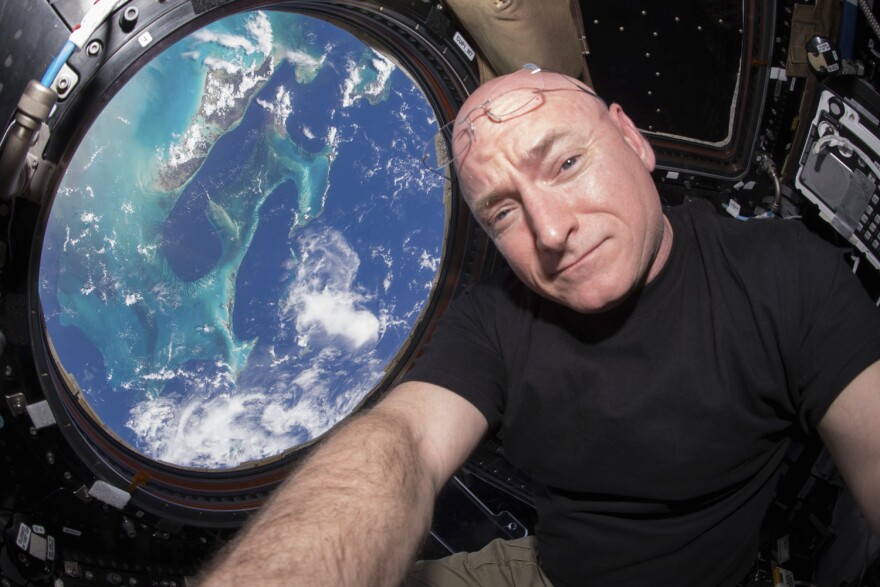It turns that out that spending a year in space can shrink your heart. A new study published this week examines the effects of weightlessness on the human cardiovascular system. KNAU’s Ryan Heinsius reports.
Astronaut Scott Kelly, twin brother of Arizona Democratic Senator Mark Kelly, spent nearly a year on the International Space Station between 2015 and 2016. Despite a rigorous six-day-a-week workout routine that included cycling, treadmill and resistive exercise, researchers say the largest chamber of his heart, the left ventricle, shrank by more than a quarter during his 340 days in zero gravity.
According to the study published in the journal Circulation, a lack of gravity and weight-bearing activities can result in the type of cardiac atrophy experienced by Scott Kelly.
But it’s not just spaceflight that can cause shrinkage. Researchers observed a similar effect on the heart of elite French endurance swimmer Benoît Lecomte. He spent 159 days attempting to swim across the Pacific Ocean in 2018, logging nearly six hours a day buoyant in the water.
As CNN reports, no short or long-term negative impacts were observed in Lecomte or Kelly as a result of losing mass in their hearts.








